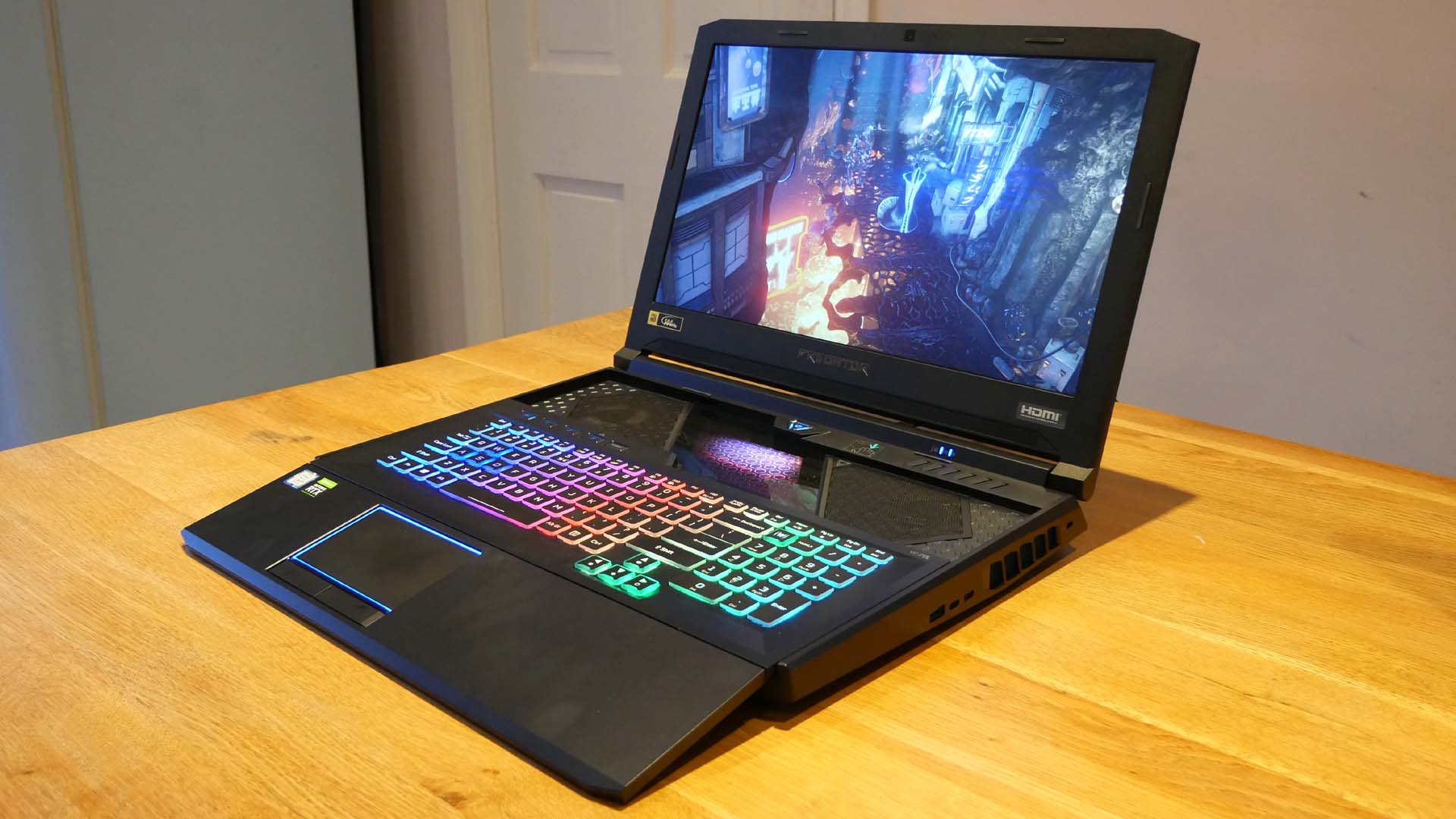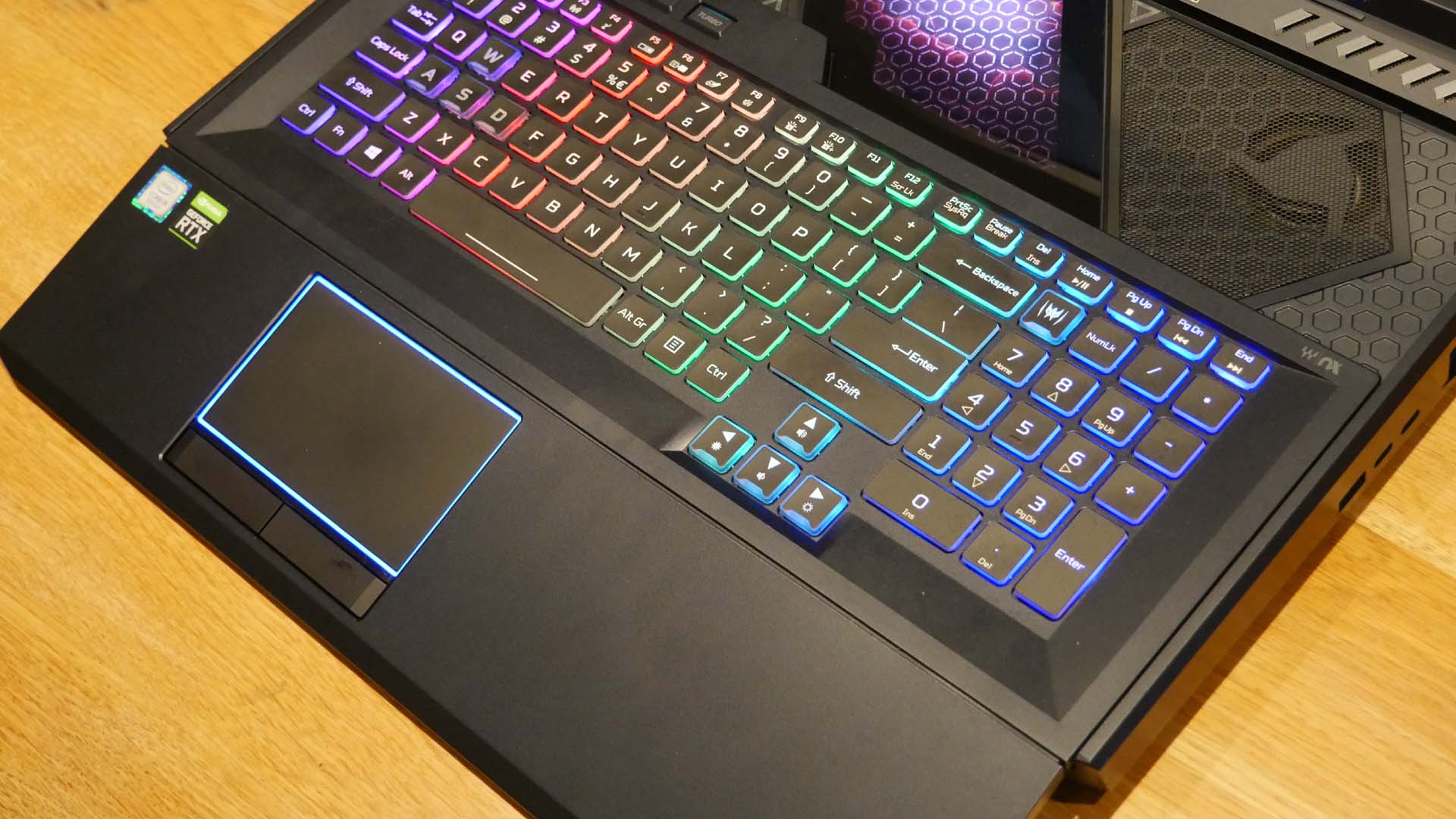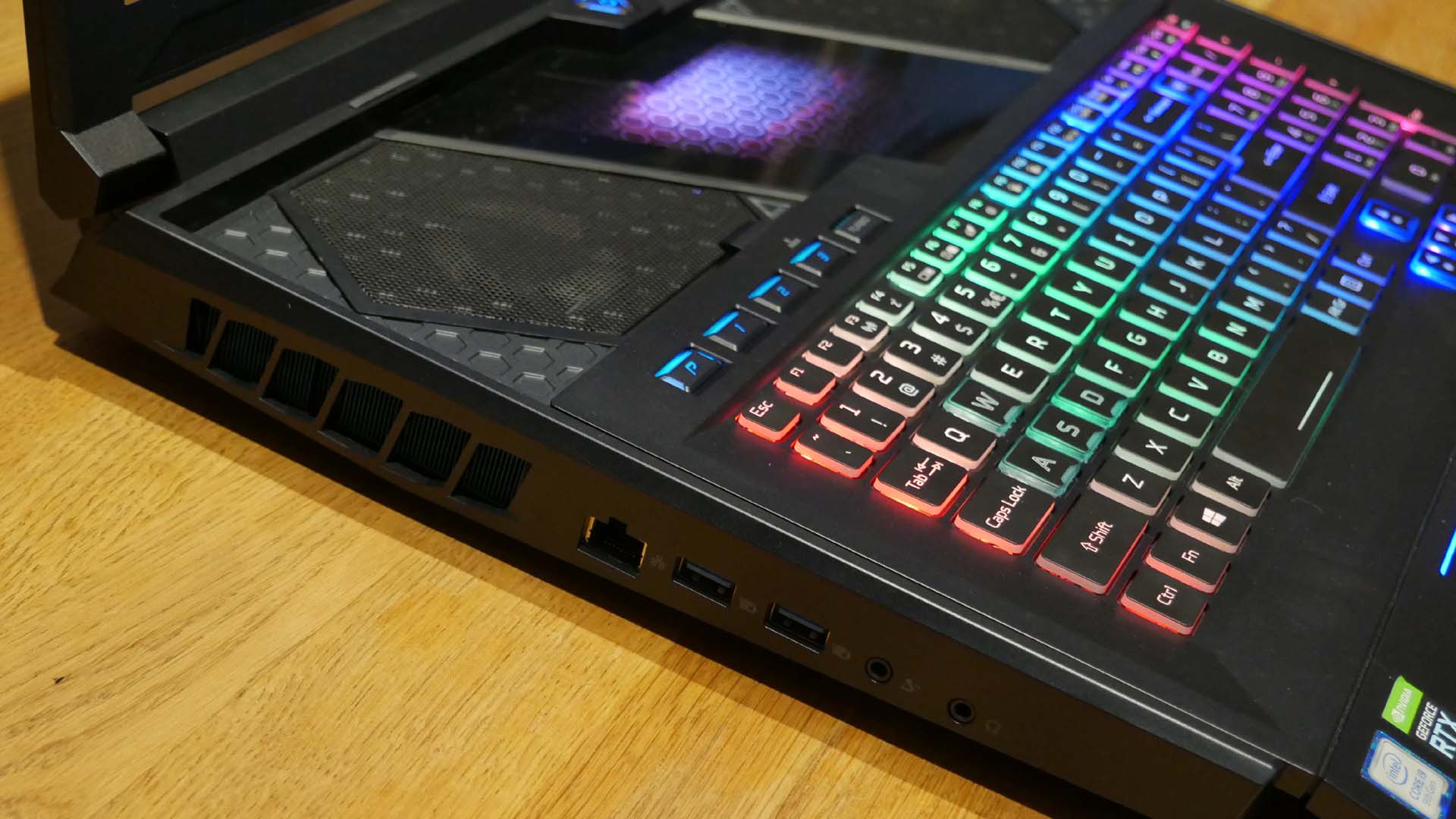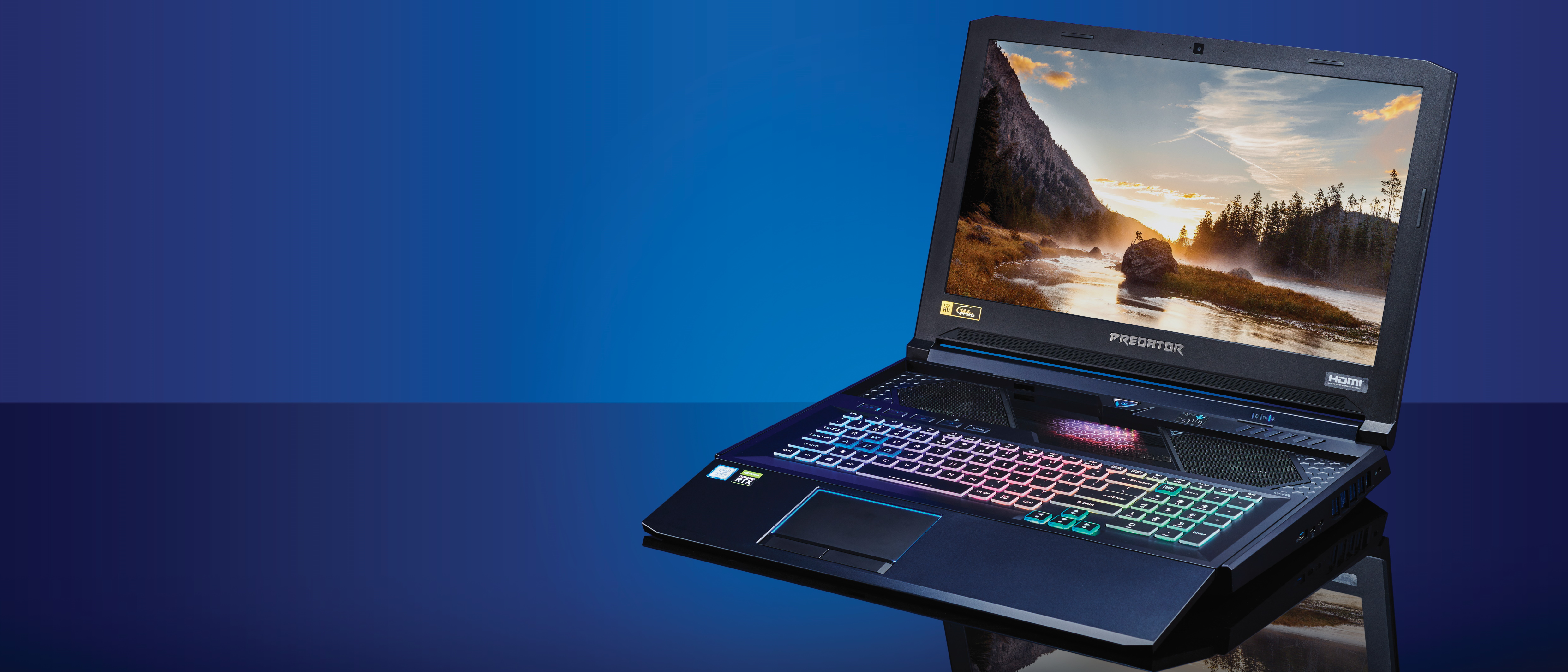Why you can trust TechRadar
Here's how the Acer Predator Helios 700 performed in our suite of benchmark tests:
3DMark: Sky Diver: 53,741; Fire Strike: 22,979; Time Spy: 10,479
Cinebench CPU: 1,813 points; Graphics: 154 fps
GeekBench: 5,851 (single-core); 30,973 (multi-core)
PCMark 8 (Home Test): 5,359 points
Battery Life (TechRadar movie test): 2 hours and 8 minutes
Total War: Warhammer II (1080p, Ultra): 102 fps; (1080p, Low): 222 fps
Shadow of the Tomb Raider (1080p, Ultra): 130 fps; (1080p, Low): 201 fps
Depending on how you slice it, the performance of the Acer Predator Helios 700 is either utterly stellar or slightly disappointing, even if that disappointment turns out not to be entirely relevant.
Allow us to explain. The core performance of this machine is mega. Even running ultra settings in a range of very demanding games, you’ll be enjoying triple-digit frame rates. That’s great because it means you’re really getting the benefit of that 144Hz panel refresh and therefore crazy-smooth gameplay.

That really shouldn’t come as a huge surprise. The Helios 700 runs an Nvidia GeForce RTX 2080 graphics chip. It’s incredibly powerful, especially given it only has to drive a mere 1080p display.
Moreover, Acer is running the RTX 2080 at up to 1,500MHz, which is virtually the same as the core clock of the desktop version of the graphics card.
Admittedly, the desktop RTX 2080 can boost up to a maximum of 1,710MHz, but this laptop really is awfully close to full desktop speeds. Which in turns means so is the gaming experience.

The same goes for the eight-core Intel Core i9 CPU. It’s hard to imagine you’d need more performance. Certainly not for gaming. It’s a monster.
The general system performance is fabulous, too. It absolutely tears through game level loads or a change of global game settings. Progress bars in such scenarios really rip, which is partly a consequence of those super speedy WD Black SSDs, not to mention the 64GB of RAM.
The latter is probably overkill, but you certainly won’t have to ever worry about running out of memory and resorting to disk swapping, that’s for sure.
If that’s the good news, the rest is mixed. There’s no doubting how effective the sliding keyboard and extreme cooling is for thermals. But the noise it makes is ridiculous.
The 5.1 speakers with subwoofer are fairly rubbish, but also fairly academic and you can’t hear anything but the fans when the Helios lights up its afterburners. Put it this way, if you don’t like using headphones, and ideally noise cancelling headphones, forget it.
Another slight disappointment is the overclocking performance. In our testing, the fastest ‘Extreme’ mode in the PredatorSense tool didn’t consistently release more performance. The core performance is so good, that probably doesn’t matter. But the overclocking capabilities of this system are, in reality, not a huge benefit.

As for the the 17.3-inch IPS display. The 144Hz refresh is predictably very sweet. It’s fairly bright, with accurate colors and good response. Detail-wise, 1080p on a 17-inch panel is pretty good.
But we can’t help feeling a 1440p panel would be more fitting for this beast of a gaming laptop. The aforementioned hefty bezels also make the panel seem smaller than it actually is, which is a pity.
Battery life
The Acer Helios 700 comes with a 70Wh battery to provide some mains-free functionality. Acer claims up to three hours run time, but in gaming terms given the power draw, it's best to view this as a transportable rig that needs plugging in.
And so it proved in our battery life tests, where the laptop gave up after just two and a bit hours playing video back on battery power and the screen at half brightness.
Verdict
What to make of the new Acer Predator Helios 700? On the one hand, its performance is incredible for a laptop. This thing tears through demanding games at ultra settings. On the other, it’s barely a laptop. Ultimately, it’s a pretty narrow niche Acer is aiming for.
As a high-end transportable gaming rig for a student dorm, this could well be your weapon of choice. But it’s so big and heavy, it’s hard to imagine taking it with you on a whim with any frequency. A small form factor PC plus a slimine 27-inch gaming monitor would probably be a better bet in many circumstances.
If you do happen to slot right into the Helios’ narrow niche, you’ll get excellent performance. It’s incredibly powerful. But even in that scenario, the noise levels might spoil your fun. If at all possible, try before you buy or at least ensure you have the option of returning for a full refund. It’s a subjective call, but this rig makes a massive din and we’re confident it will be a deal breaker for some.
We’re glad the Acer Predator Helios 700 exists. It’s interesting. It’s innovative. And it’s very, very fast. It’s also very compromised. Thus, it’s not a laptop we can recommend without major caveats. But if you’ve processed this portable’s peccadilloes and think it might still suit your needs, it deserves a spot on your shortlist. There’s little else quite like it.
Technology and cars. Increasingly the twain shall meet. Which is handy, because Jeremy (Twitter) is addicted to both. Long-time tech journalist, former editor of iCar magazine and incumbent car guru for T3 magazine, Jeremy reckons in-car technology is about to go thermonuclear. No, not exploding cars. That would be silly. And dangerous. But rather an explosive period of unprecedented innovation. Enjoy the ride.
